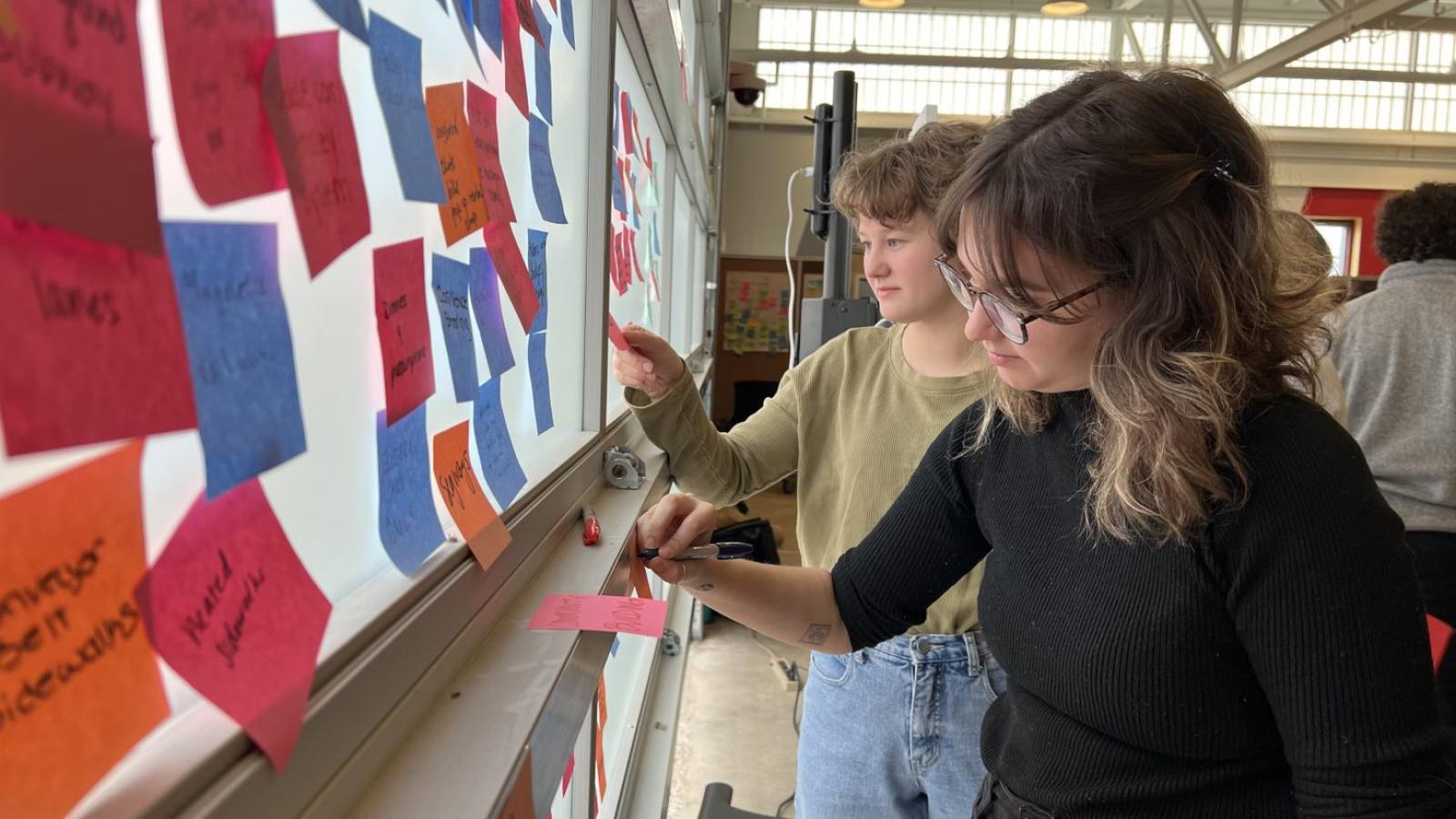Once Upon a Game: Improving Motivational Factors Contributing to Aliteracy Through Arts- and Narrative-Driven, Interactive Gameplay
Simone Downie
MFA Digital Animation and Interactive Media, 2022
Game:
Shadow Castle is an interactive multiplayer game that encourages aliterate learners to re-engage with stories in hands-on ways to help them recognize that their personal and creative ways of making meaning are valid. By encouraging learners to engage with narrative in multimodal ways, it’s my hope that players will develop an awareness of how multiple senses and modes contribute to our understanding and comprehension, which will in turn improve their confidence toward and enjoyment in literacy-related activities. The game leverages cooperation to give encourage players to work together to solve problems and communicate their understandings; multimodality to explicitly guide players through the semiotic process of meaning making using multiple senses and modes; and tactile touch to bring form and function to the meaning of words to build comprehension and vocabulary skills.
Shadow Castle is a physical pop up storybook with projected game elements. Players must work and communicate together to manipulate tactile objects and harness the ability of words to solve puzzles and help guide the main character, Lucy, through a dark and mysterious forest. Each player has a distinct role that is meant to compliment and support the other's. Player 1 is 'in charge' of the physical elements of the book. She is responsible for manipulating the pages in ways you would see in a touch and feel storybook for children. Player 2 uses a joystick to control Lucy's new sidekick, a lost little shadow creature who is displayed on the book via an overhead projector. This little shadow is not only able to fly around, but he can 'swallow' words within the narrative text and use them as abilities.
Thesis abstract:
Reading is a complex web of intricately connected technical skills, comprehension strategies, and socio-emotional behaviors. Included in this process is willingness – willingness to pick up a book for leisure and engage with its characters, story, and themes merely because you find it satisfying and interesting to do so. But not everyone has such a positive relationship with literacy-related content; as children grow older, their perception of both themselves and the act of reading often tend to shift based on their experiences in the classroom, leading an increasing number of adolescents to lose the motivation to read. This phenomenon, known as aliteracy, can occur as a result of personal fear, disinterest and lack of relevancy, or feeling restrained in the modes and tools available to connect with others. Though several classroom initiatives – including teacher scaffolding, read aloud story time, and collage – have been shown to improve aliterate learners’ relationship to text, such activities require a great deal of effort and training on the part of the teacher. Educational games stand out as a promising way to overcome the inconsistencies and demands of these initiatives while increasing intrinsic motivation in players. However, the success of games as reading interventions is dependent on their design and how well they foster feelings autonomy, competence, and social relatedness – the three key elements of motivation according to Self-Determination Theory. In my research, I’m interested in how interactivity can serve as the bridge between reading and gameplay to not only bring these two domains together but also to deepen their motivational impact on readers and players. The two games described in this thesis serve as experiments in fostering feelings of intrinsic motivation in students by integrating interactions that give players heightened control over the game’s narrative, interface, and multimodality. Within this document, I expand on the development of these games, detailing the design considerations and insights, playful experience, and player outcomes of each, focusing specifically on their impact on player motivation and relationship to literacy-related content and activities.
URL:http://rave.ohiolink.edu/etdc/view?acc_num=osu1650593396931659
Committee Members:
Scott Swearingen, Sébastien Proulx, Maria Palazzi


